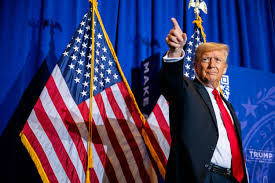The notion of balance has a powerful audience appeal. We, the people are said to be capable of thinking for ourselves and need only to be given the facts without bias. A favourite saying of politicians is 'the people are not fools' and media professionals repeat the flattery. Everyone agrees we can decide what's true once we have the facts.
It may feel we're all on the same page on this, but the story is unconvincing. The media, on the left or right, plainly do not offer balance. They take sides and press opinions more uncompromisingly than ever because social media can leave them behind now on any tricky topic of the day.
Distracted if not divided by this though we are, we citizens, as a body, complain unceasingly about the media's wicked ways, whatever their political colours.
We rail against the influence of press barons and wealth, the glaring omissions and outright lies of MSM news coverage and TV documentaries; we claim the 'woke' have taken over or the fascists have. Across social media there's relief that Donald Trump's once vaunted truth-telling is no longer the force it was; in the UK, the right wing are outraged by the BBC's pushing 'lefty views' and the lefties are outraged by Britain's national broadcaster 'suppressing' them.
Can some sense be found in this jumble? Rather than look only at what the media are doing, we need to look at the media's audiences. That's all of us.
Aren't we, the people, simply showing 'confirmation bias'? Everyone's heard about confirmation bias today. It's our tendency to seek out opinions that we agree with. Life is less of a problem that way.
Confirmation bias may be exercised consciously but, much more often, works unconsciously. Either way we're not buying our usual tabloid or tuning into CNN or Fox News because we're looking for balance. We're spending our money and time on confirmation. Far from the media offering balance, it appears the media are telling us what we want to hear.
This cannot be made illegal; people are entitled to their different loyalties; we take sides. That's individual rights and democracy. But it raises questions we can easily overlook.
Do the media manipulate us, pull the strings as the illustration to this article proposes, or do they simply reflect our biases? If the media are biased only because we are, is there any harm in it?
On the other hand, if they are manipulating us, what are they doing it for? If the usual answer is correct - it's for money and power - why don't they make money and grab power by taking the other side? It's equally open to them. What makes them choose?
Whatever the answer to that, we cannot escape our own part here. Confirming time and again that we're right about something - shocking! just like I spotted before! - can convince us we're always right about everything. If that's not good, what's worse is that it makes other people, other opinions, always wrong. Which ones? All of them! They're either hiding some sinister agenda or fools. (The italics indicate irony: the people aren't fools, remember?)
And if we refuse to negotiate because the others are wrong, if we mustn't give in because we're always right, if we scorn to work with fools, how can we or society manage to succeed? What's the answer?
A start would be never to trust what you read in the papers.


